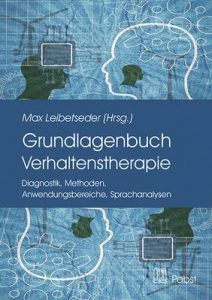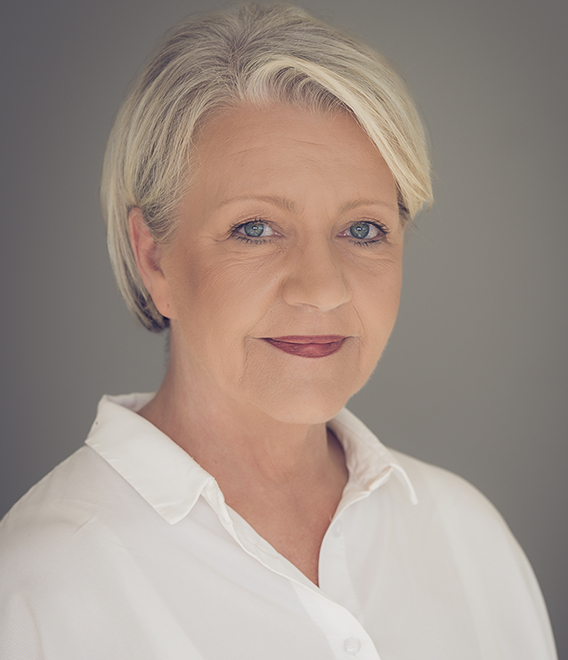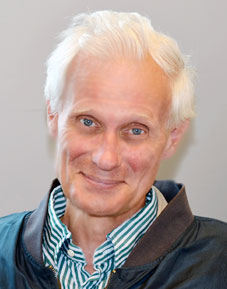The application for a psychotherapeutic specialisation course in behavioural therapy at SFU was approved by resolution of the Austrian Psychotherapy Advisory Board on 13 December 2016. The application for recognition as a psychotherapeutic training institution of the method-specific orientation of behavioural therapy according to §7 of the Austrian Psychotherapy Act, BGBI.Nr.361/1990, was submitted to the Austrian Federal Ministry on 17 June 2015. The recognition of the method behavioural therapy as a training institution for the psychotherapeutic specialisation took place on 23 February 2017.
Please note that participants in the training who are not simultaneously studying psychotherapy science at SFU, may not complete the practical hours at the SFU Outpatient Clinic.
Modern Behavioural Therapy
Behavioural therapy emerged from the concepts of basic research, is a basic psychotherapeutic orientation based on empirical psychology and comprises disorder-specific and disorder-unspecific therapy methods.
Modern behavioural therapy is a holistic person model that focuses on the person in his or her active role, in the search for an independent way of life, in social relationships, with the desire to participate in social processes, in his or her problems with psychological, emotional, psychosomatic stress, thoughts, feelings, in a therapeutic relationship, shaped and accompanied by therapists with empathy, warmth and flexibility, in a method that is in continuous change, be it cognitive, behavioural, emotional and body-related, and continuous development, but above all sees individuality as its basic attitude.
It sees problems as an imbalance between the ACTUAL and the TARGET state.
A problem-solving process is initiated, individual programmes are created in order to strive for change. In this working alliance of two equal partners, the treatment is seen as “help for self-help”. The goal is to gain self-control over the problem, to achieve more self-efficacy and thus to generate personal freedom of action. (cf. Batra, 2013)
The reformulation of a method that originated in psychology, developed standardised methods on the basis of general basic principles and, as one of the most successful schools of therapy at SFU, contributes to the academisation of the profession of psychotherapist. That is modern behavioural therapy.
Curriculum & Introduction to Behavioural Therapy
VT-Curriculum_Stand 03-2017.pdf
Admission to this method requires positive completion of the psychotherapeutic propaedeutic course, which can be completed either externally or at SFU. An admission procedure then opens up the training path for students in modern behavioural therapy.
Essential components of the training are theoretical and practical content, individual and group self-awareness, individual and group supervision and language as an intervention. The courses serve to impart basic knowledge and practical exercises that accompany the practical training and thus provide the basis for the profession of behaviour therapist.
The training programme is supplemented with application-oriented teaching and learning methods, lectures, discussions, group work, video analyses, case work, exploration of case studies and role plays. The SFU’s own outpatient clinics offer internships and practical activities in dealing with patients. Students of psychotherapy science are thus offered access to working with patients.
Individual contents of the curriculum (FS VT 2017)
The course Scientific Foundations of the Behavioural Therapy Method serves as a basis and preparation for the participants to acquire basic knowledge and application skills.
Psychopathology provides insights into the basics of descriptive-psychopathological diagnostics, teaches the competent implementation of behavioural therapy explorations, teaches the use of psychometric procedures and sees the creation, production and development of a psychopathological report as its learning objective.
The focus of the disease models is on recognition, diagnosis and treatment. The essential areas of this course are the teaching of basic knowledge of the disorder models for the subsequent treatment of mental clinical pictures.
Psychotherapeutic diagnostics, as an important part in therapy, conveys application-oriented contents in order to give sufficient space to the understanding of science in behaviour therapy and to prepare students to understand differentiations and to learn to respond to individual particularities with empathy.
The standard methods of modern behavioural therapy enable future psychotherapists to achieve treatment goals effectively and efficiently together with their patients. The use of these proven psychological approaches is an important part of the therapeutic process. In this course, the focus is on teaching techniques and tools that are applied flexibly, in the sense of problem solving, in order to approach the desired therapy goals.
In disorder-specific seminars, content on individual clinical pictures and their treatment techniques are taught in order to obtain tools for therapeutic action and dealing with persons suffering from mental disorders.
Conversation management, building up and shaping relationships, essential characteristics and effective factors in the therapeutic process, are worked out together in a group setting and practised in role plays.
Other special areas in this method-specific training include social competence training, skills training, relaxation procedures, mindfulness-based and emotion-focused techniques as well as body-oriented approaches.
Schema therapy should be given equal attention at this point. As a further development of cognitive behavioural therapy, it is offered to psychotherapists in training under supervision in the form of in-depth basic modules in the last part of the training, in order to emphasise the modernity of behavioural therapy.
Supervision, self-experience and internship reflections represent areas in this educational pathway whose aim is to sharpen the ability for self-reflection and to develop further in the personality.
Equipped with strategies, intervention techniques and tools, equipped with theoretical content and practical know-how, the training parts form a foundation to prepare students for independent work with patients and to encourage them to practice the profession of psychotherapist (behavioural therapy) in order to obtain the qualification to practice as “academic psychotherapists” at the end of this university training path.
(cf. Pritz, A., Fiegl, J., Laubreuter, H., Rieken, B., 2020 )
Literature
 |
Max Leibetseder GRUNDLAGENBUCH VERHALTENSTHERAPIE Diagnostik, Methoden, Anwendungsbereiche, Sprachanalysen Pabst, 2018, 624 Seiten Buchbeschreibung.pdf |
Admission 2024
Admission Procedure
1. Two admission interviews with teaching therapists of the behavioural therapy method:
Dr. Karin Kollitsch (Mail: karin.kollitsch@gmail.com, Tel.: +43 676 699 9300) and Petra Hulle-Wegl, BA.pth. (Mail: petra.hulle-wegl@sfu.ac.at, Tel.: +43 664 488 27 12)
2. A full-day admission seminar at SFU Vienna – with teaching therapists of the behavioural therapy method – on 27th June 2024, 9 am – 5 pm (in person at SFU Vienna).
After successfully completing the two admission interviews, registration for the admission seminar takes place (see method admission seminars for the respective winter semester).
Admission seminar at SFU Linz: on 28th June 2024, 10 am – 6 pm (in person at SFU Linz).
We expressly point out that a psychotherapeutic propaedeutic certificate must be submitted by 31st August 2024 for an intended start of training in September 2024.
Contact | Team Behavioural Therapy

Petra Hulle-Wegl, BA.pth.
Methods and training management, teaching
petra.hulle-wegl@sfu.ac.at

Dr. Karin G. Kollitsch
Methods and training management, teaching
karin.kollitsch@gmail.com

Priv. Doz. Dr. Max Leibetseder
Science and research
maximilian.leibetseder@gmail.com

Hans-Jürgen Klien, BA.pth.
Literature
hans-juergen.klien@sfu.ac.at

Bettina Pfitzner
Administration
bettina.pfitzner@sfu.ac.at
Teaching Analysts, Therapists & Supervisors in Behavioural Therapy
Events
Information available soon…
Past events
Workshop with Univ.-Doz. Dr. Gerald Gatterer
Dealing with difficult patients
Workshop mit Frau Mag. Dr. Alice Sendera:
DBT-Körperskills – Den Körper habe ich immer dabei!
Fortbildung: „Grundlagen der Schematherapie“
Vortragender: Mag. Christoph Teufl
Details Workshop – Schematherapie.pdf
Seminar: DBT-Skills-Training
DBT-Skills-Training – körperorientierte Strategien
- Link SFU Forum